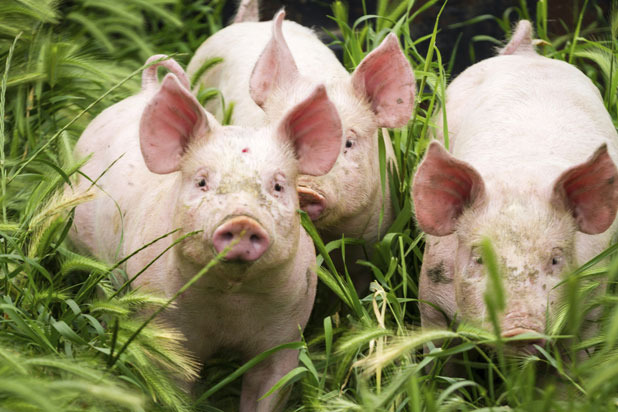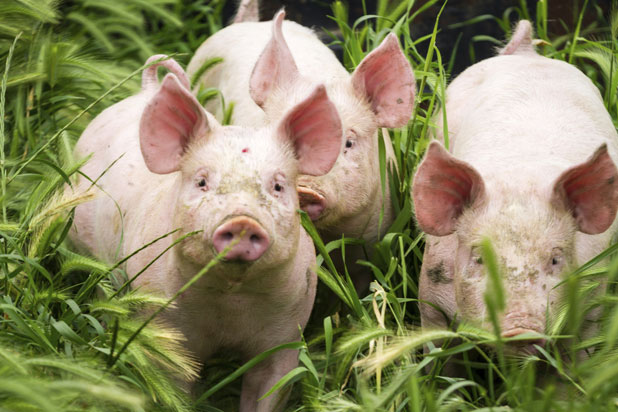6 American Meat Products That Are Banned Abroad
Next time you're enjoying a plate of giant Buffalo wings or chowing down on a giant steak, think about the size of the animal that must have produced it. Have you ever noticed how much bigger some U.S. cows, chickens, and turkeys are than their European counterparts. That's because many of America's animal farms actually mix in synthetic hormones with the feedstock, making their cows, pigs, and other animals grow a lot bigger and faster than they usually would.
Click here to see the 6 American Meat Products That Are Banned Abroad (Slideshow)
While the practice has been given the thumbs up by the Food and Drug Administration, many overseas countries feel that the resultant meat and meat products are not all that safe for human consumption and disapprove of the practice. For this reason, and several others, a handful of common U.S. meat products are actually banned from sale abroad.
American beef is a prime example of meat being treated with a variety of hormones that have placed it on the banned list for several countries since 1993. U.S. chicken also makes an appearance on the banned list for being washed with chlorine. (It kills some the dangerous pathogens the chickens absorb while they're crammed into the tight quarters of their feeding pens.)
Believe it or not, a lot more of your favorite American foods might actually be banned from being sold abroad. That big slice of papaya with your morning breakfast, for example, may have been genetically altered to make it bigger and shinier and so it's banned in Europe, Japan, and several other countries that have strict rules about the sale of GE (genetically engineered) foods.
There are also plenty of food additives like Olestra, or Olean (found in potato chips), or bromated flour (commonly used in baking), or even popular food colorings like red dye #40 and yellow dye #6 (check your food labels to see how often they show up in the listed ingredients), that are widely used in American foods and beverages, from candies to sodas to vegetable oil, which are banned in most other countries.
Now, before you panic, food manufacturers who are using these additives and hormones are not necessarily trying to poison you — some additives preserve the life of the food if it's meant to be stored for a long time, and the hormones allow more meat to be sold to meet the demands of a growing hungry population. Often, the FDA weighs the health concerns against agricultural demands and decides it's worth it, even if the European Union (with much stricter food processing laws) often doesn't agree.
Take a look at our list of some of the American meat products that are banned abroad and see if you agree.


